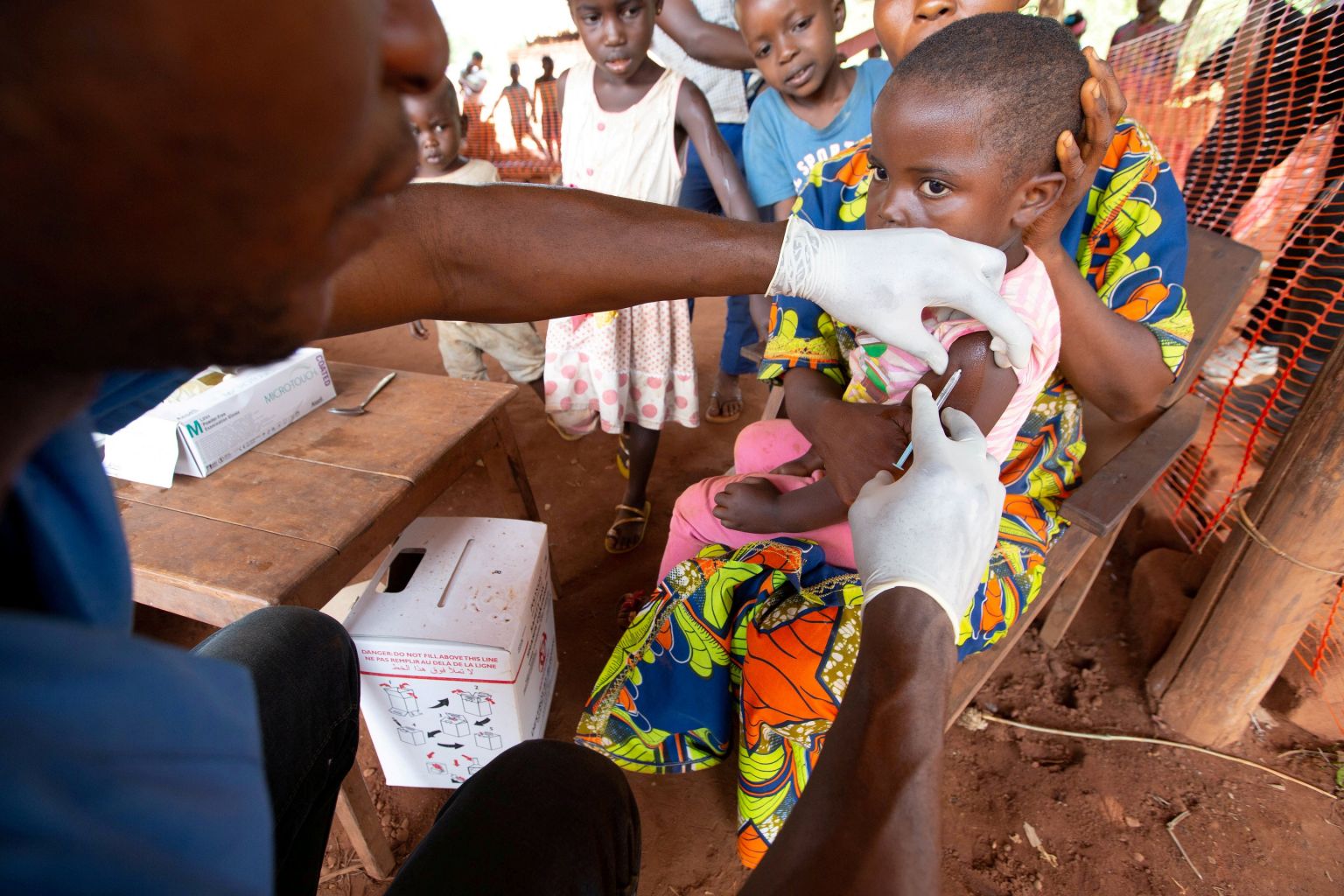Millions at risk as coronavirus disrupts immunisation campaigns: UN
Sign up now: Get ST's newsletters delivered to your inbox

A child is given a measles vaccination during a campaign run by Doctors Without Borders in the Democratic Republic of Congo.
PHOTO: REUTERS
Follow topic:
ABUJA (AFP) - Millions of people, including in Africa's most populous country Nigeria, risk contracting diseases such as polio and measles as the coronavirus pandemic has halted vaccination campaigns, the UN said on Wednesday (Nov 11).
Additional financial resources are needed to safely resume vaccinations, the UN childrens' agency Unicef and the World Health Organisation said in a joint statement.
"We cannot allow the fight against one deadly disease to cause us to lose ground in the fight against other diseases," said Unicef executive director Henrietta Fore.
"Addressing the global Covid-19 pandemic is critical. However, other deadly diseases also threaten the lives of millions of children in some of the poorest areas of the world," she added in a joint statement with the WHO.
While Nigeria, home to 200 million people, eradicated wild polio in August, it remains at risk of vaccine-derived polio.
Measles is among the leading cause of death and disability in children in the country, where 54 per cent have only received one vaccine dose, according to the 2018 Nigeria Demographic and Health Survey.
On Monday, authorities said they were battling a suspected outbreak of yellow fever in two southern states, Delta and Enugu, that left more than 70 dead according to local media.
In neighbouring Benue state, more than a dozen unexplained deaths have been reported in recent days.
The percentage of people immunised against yellow fever remains low in many parts of Africa, even though the vaccine is nearly 100 per cent effective.
Coronavirus has claimed 1,160 lives and infected 64,336 in Nigeria, but these numbers are thought to be conservative due to a lack of testing.
International health bodies are now calling for immunisations to fully resume worldwide in order to protect lives.
"Unlike with Covid, we have the tools and knowledge to stop diseases such as polio and measles," said WHO director-general Tedros Adhanom Ghebreyesus.
"What we need are the resources and commitments to put these tools and knowledge into action. If we do that, children's lives will be saved," he said.
In Nigeria, immunisations for measles and polio are available at all government health centres, according to Mr Peter Hawkins, Unicef Nigeria Country Representative.
"All caregivers and parents need to ensure that their children are fully vaccinated and protected from childhood killer diseases," he said, "including ensuring that all doses are taken, so that the vaccine can be effective."

